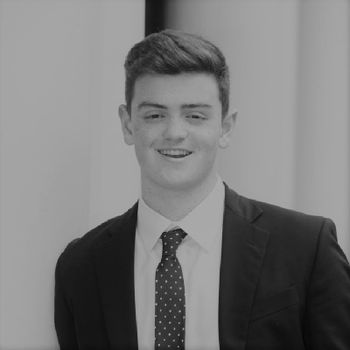U Chicago prof faces backlash after questioning diversity hires
A University of Chicago professor is being targeted after criticizing the university's Equity, Diversity, and Inclusion initiatives.
The president of the university defended the professor, reiterating the instiution's commitment to free speech.
One university president is defending a professor after other faculty members called for disciplining a professor because he criticized the university’s Equity, Diversity, and Inclusion initiatives.
University of Chicago Professor of Geophysical Sciences Dorian Abbot published a series of videos on YouTube from Nov. 13-15, addressing his department’s hiring practices and diversity initiatives. The now-removed videos included slides encouraging fair treatment of applicants and equal opportunities for promising scientists.
In response, affiliates of the Geophysical Sciences Department published an open letter that accuses Abbot of threatening the safety of underrepresented groups and lists nearly a dozen demands.
[RELATED: University of Chicago faculty demand reparations]
The letter contains 162 signatures, including 58 affiliates of the Geophysical Sciences Department.
The authors demand that the Department of Geophysical Sciences rescind Abbot’s privileges as Department Website and Social Media Committee Chair, reevaluate the courses that he teaches, and petition the school administration for increased funding of Equity, Diversity, and Inclusion (EDI) initiatives. They also ask to reevaluate Abbot’s popular course “Global Warming: Understanding the Forecast” so that Abbot is removed as “the face of our department.”
The demands include placing EDI statements in all faculty job applications and implementing accountability measures “to address patterns of bigoted behavior.”
The authors also request directing funds from the department to “EDI initiatives” and providing a person trained in “transformative justice” to mediate town halls.
[RELATED: University of Chicago pres. slams ‘privileging of feelings’]
However, the university’s president, Robert Zimmer, issued a statement reaffirming the institution’s commitment to academic freedom and free expression as articulated in the Chicago Principles.
Zimmer writes that “the University does not limit the comments of faculty members, mandate apologies, or impose other disciplinary consequences for such comments, unless there has been a violation of the law.”
He continues, “The University is committed to creating an inclusive environment where diversity is not only represented but individuals are empowered to fully participate in the exchange of ideas and perspectives.”
Abbot says in a written statement that he and some of his colleagues have expressed concern with the implementation of EDI efforts in recent years. Abbot writes that he created his first video in response to a colleague who said during an internal seminar, “If you are just hiring the best people, you are part of the problem.”
The video presents consequences of EDI initiatives, the inability for departmental change to affect societal problems, and the realities of an academic climate that makes it “extremely difficult for people with dissenting viewpoints to voice their opinions.”
Abbot made a second video providing further examples and data. His third video references the Shils Report – a 1970 document produced by the Committee on the Criteria of Academic Appointment to establish the University’s hiring methods and priorities.
Abbot told Campus Reform that even though he disagrees with the people who are criticizing him, he acknowledges their right to express their views.
”The move to classify speech one disagrees with as ‘threatening’ or ‘harmful’ is an effort to silence and punish opposing viewpoints rather than actually disagree with and debate them on their merits. While I find the tactics of the graduate students and postdocs who wrote my letter of denunciation illiberal, they have every right to express their views, even the view that I should be punished,” Abbot said.
Abbot also emphasizes the importance of the Chicago Principles, stating that the university president has stood up for free speech in the past, and continues to do so.
“President Zimmer has a long-standing commitment to academic freedom and this is a central part of the University of Chicago brand. This episode shows how important it is for universities to officially adopt the Chicago Principles, or something similar, which administrators can point out when a free speech crisis emerges,” Abbot said.
Abbot concludes, “While I am fortunate both to have tenure and to teach at the University of Chicago, whose top leadership places a high priority on free speech, many others are not so lucky. The current ‘cancel culture’ has a powerful chilling effect on faculty, who fear for their jobs if they speak their minds on critically important issues affecting the future of our universities and our society.”
Follow the author of this article on Twitter: @JackSCapizzi

